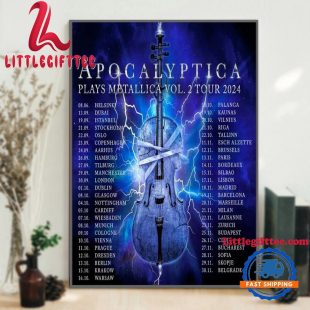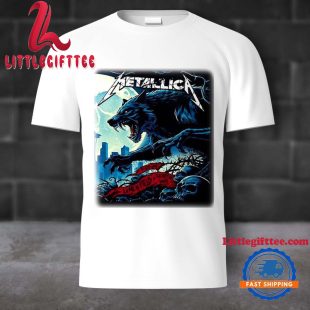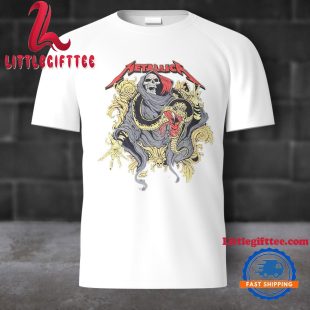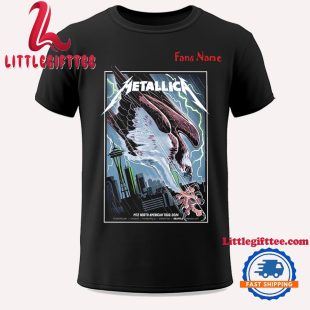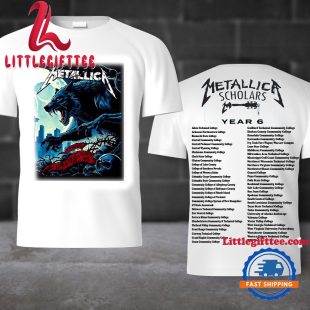Music
What is Metallica’s Song One About?
Metallica’s song “One” stands as an evocative portrayal of the grim realities of war, capturing the harrowing aftermath that soldiers endure. With its intricate lyrics and haunting instrumentation, the track transcends mere musical composition; it becomes a powerful commentary on loss, isolation, and the longing for peace. As we delve deeper into the lyrical and musical depths of “One,” we will explore how Metallica conveys the struggles of a soldier, the broader social implications of warfare, and the ethical dilemmas associated with conflict.
The Lyrical Depth of “One”
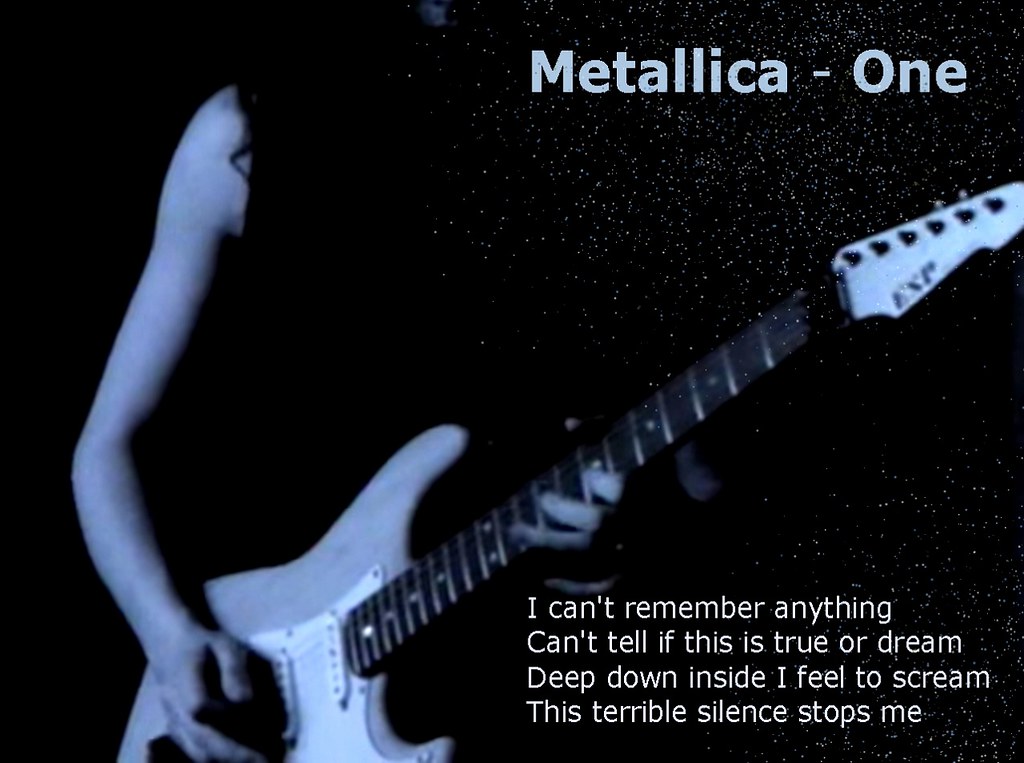
The lyrics of “One” offer a visceral glimpse into the life of a soldier who has been irrevocably changed by the horrors of combat. The protagonist’s plight resonates not only with veterans but also with anyone grappling with loss or despair. In this section, we will unravel the intricacies of the song’s narrative and explore its emotional weight.
Trapped in Silence

The opening lines of “One” present the chilling reality faced by the protagonist: a soldier confined within a body that no longer responds to him. This physical entrapment serves as a metaphor for emotional and psychological confinement, illustrating how war can strip individuals of their agency.
As listeners engage with these poignant lyrics, they are invited to reflect on the deeper ramifications of such trauma. The notion of being trapped in silence echoes the experiences of many who have served in combat, where their voices, often silenced by the chaos of battle, struggle to be heard. This theme of isolation resonates powerfully, as it invites empathy from those who may never have experienced the battlefield firsthand.
Moreover, the idea of feeling disconnected from one’s own body elevates the song’s message, highlighting the profound effect of war on mental health. For many veterans, the battle does not cease upon returning home; instead, it continues in the form of PTSD, depression, and anxiety. By portraying this reality, Metallica challenges listeners to confront the real cost of warfare, compelling them to question societal narratives surrounding military valor and heroism.
Desperation and Yearning for Peace
Within the gripping storyline of “One,” there emerges a palpable sense of desperation. The protagonist longs for peace, yet finds himself ensnared in a cycle of pain and suffering. This yearning for solace underscores the absurdity of war, where noble intentions become obscured by the brutality of conflict.
Listeners cannot help but feel the weight of this longing, as it resonates deeply with the human desire for safety and normalcy. Metallica masterfully crafts this emotional landscape through vivid imagery and poignant language, painting a picture of despair that is all too familiar to many. In acknowledging the psychological toll of war, the song transcends personal tragedy to explore the broader societal impact of violence.
The desperation articulated in “One” also mirrors the sentiments of countless communities ravaged by conflict. Families torn apart, cities left in ruins, and lives irreparably altered—all echo the protagonist’s internal struggle. By weaving this narrative into the fabric of the song, Metallica fosters a sense of collective responsibility towards understanding and addressing the consequences of warfare.
A Broader Commentary on War
While “One” is undoubtedly a personal narrative, it extends beyond the individual experience to serve as a broader commentary on war’s implications. Metallica dives deep into the moral dilemmas faced by soldiers and society at large, prompting listeners to engage critically with the nature of conflict.
By presenting a soldier’s plight, the band raises essential questions about the ethics of warfare. What are we willing to sacrifice in the name of national pride? Is the glorification of military might truly honorable, or does it mask the devastating reality of loss and suffering? In confronting these questions, Metallica urges listeners to consider the futility of war and the need for compassion and understanding.
In this light, “One” functions as both a tribute to those who have suffered and a call to action. It challenges the listener to recognize that true honor lies not in glorifying battles won but in acknowledging the scars borne by survivors. The song encapsulates the duality of human existence: our capacity for courage and valor juxtaposed against the overwhelming sorrow that follows in the wake of conflict.
Musical Composition: A Symphony of Suffering

Beyond its lyrical depth, “One” stands out as a remarkable work of musical artistry. The song evolves from a somber ballad into an explosive thrash metal anthem, mirroring the internal turmoil faced by its narrator. In this section, we will explore how Metallica skillfully employs musical elements to enhance the narrative and convey the emotions tied to the soldier’s experience.
From Melancholy to Cataclysm
The journey of “One” begins with a haunting melody that evokes a sense of melancholy and introspection. The gentle guitar arpeggios set a somber tone, reflecting the protagonist’s initial state of despair. This slow build-up creates an intimate connection with the listener, inviting them to step into the soldier’s shoes and experience the weight of his suffering.
As the song progresses, the dynamics shift dramatically, transitioning into a powerful thrash metal anthem. This sudden surge in intensity mirrors the unpredictable nature of war itself, capturing the chaotic essence of combat. Moments of stillness erupt into ferocious energy, symbolizing how lives can change in an instant when faced with violence.
This duality in musical composition enhances the emotional experience, allowing the audience to fully grasp the tumultuous journey of the protagonist. The juxtaposition of serene melodies with explosive riffs serves as an analogy for the unpredictability of life in war, where tranquility can be shattered by chaos at any moment.
Guitar Solos and Percussion as Expressions of Turmoil
The heart of “One” lies in its powerful guitar solos and driving percussion, which amplify the feelings of shock and grief experienced by the protagonist. The intricate guitar work showcases a level of technical mastery that elevates the song to new heights, making it a hallmark of Metallica’s musical prowess.
Each note played carries a weight of emotion, resonating with the listener on a visceral level. The crescendos serve as cathartic releases of pent-up anguish, perfectly capturing the internal conflict of the soldier. In this way, the guitar solos become more than mere embellishments—they act as expressions of the character’s suffering, translating emotion into sound.
The rhythmic intensity of the percussion further emphasizes the erratic pulse of life following combat. Each beat echoes the heartbeat of a soldier caught between life and death, encapsulating the urgency of the message. Through these thought-provoking compositions, Metallica effectively immerses the audience in the harrowing reality faced by the protagonist.
Sound Effects: An Immersive Experience
To create an even more immersive experience, Metallica incorporates sound effects throughout “One,” adding layers of depth to the storytelling. The inclusion of gunfire, explosions, and haunting whispers draws the listener into the battlefield, making them feel the chaos and confusion experienced by the soldier.
These sound effects serve to heighten the emotional impact of the song, transforming it into a multi-sensory experience. As listeners navigate through the layered instrumentation, they are confronted with the stark realities of war, fostering a deeper connection with the plight of those affected by conflict.
Furthermore, the use of sound effects reinforces the urgent nature of Metallica’s message. By immersing the audience in the harrowing experiences of the protagonist, the band compels them to confront the consequences of war head-on. This dedication to authenticity elevates “One” to a position of cultural significance, ensuring its relevance in discussions surrounding the human cost of warfare.
Cultural and Ethical Implications

The significance of “One” extends far beyond its artistic merit; it invites reflection on the ethical implications surrounding war and challenges listeners to engage critically with the narratives that surround military service. In this section, we will explore how Metallica’s poignant depiction of a soldier’s plight encourages broader discourse on the moral complexities of conflict.
Questioning the Cost of War
At the core of “One” lies a profound questioning of the costs associated with war—both in terms of lives lost and the lasting scars borne by survivors. Metallica poignantly portrays the moral dilemmas faced by individuals thrust into combat situations, inviting listeners to consider the ethical implications of their actions.
The stark reality presented in the song prompts a reevaluation of societal attitudes towards war. Are we willing to blindly support military actions without considering their repercussions? Metallica challenges listeners to think critically about the narratives that glorify war, ultimately advocating for a more compassionate understanding of the human experience.
As we grapple with these questions, “One” serves as a reminder that the consequences of war extend far beyond the battlefield. The lasting impact on families, communities, and nations should compel us to cultivate empathy and understanding, rather than perpetuating cycles of violence.
A Tribute to the Fallen
Metallica’s “One” acts as a tribute to the fallen and the suffering, honoring those who have paid the price for conflict. The song acknowledges the sacrifices made by soldiers and their families, shedding light on the emotional toll exacted by warfare.
By highlighting the pain endured by veterans, “One” fosters a sense of solidarity with those who have experienced the harsh realities of combat. It serves as a reminder that behind the glorified images of heroism lie stories of loss, grief, and trauma.
This tribute goes beyond mere acknowledgment—it calls for compassion and understanding towards veterans as they navigate the complex terrain of reintegration into civilian life. Through its emotional depth, “One” urges society to recognize the ongoing struggles faced by soldiers long after the battle has ended.
Challenging Traditional Narratives
In addition to honoring the fallen, “One” challenges traditional narratives surrounding military valor and heroism. Metallica prompts listeners to reconsider what it means to be brave in the face of adversity. Is true courage found in glorifying war, or does it lie in acknowledging its consequences and working diligently toward peace?
This critical engagement with prevailing narratives encourages listeners to reframe their understanding of heroism. Rather than celebrating conflict, the song advocates for recognizing the humanity of those affected by war, urging individuals to strive for compassion and understanding.
In doing so, “One” promotes a vision of honor that transcends the battlefield, encouraging listeners to contemplate the ethical implications of their beliefs and actions. By fostering this dialogue, Metallica ensures that “One” remains relevant in discussions about war and humanity’s collective consciousness.

In examining Metallica’s “One,” we uncover a powerful exploration of the grim realities of war and its lasting impact on the human spirit. Through haunting lyrics, dynamic musical composition, and a critical engagement with cultural and ethical implications, the song transcends its role as mere entertainment. Instead, it stands as a poignant commentary on loss, isolation, and the urgent need for compassion in a world plagued by conflict.
Ultimately, “One” serves as both a tribute to the fallen and a call to action. It challenges listeners to confront the consequences of warfare and strive for understanding, emphasizing that true honor lies not in glorifying conflict but in recognizing the profound scars borne by survivors. As we reflect on the themes woven throughout the song, we are reminded of the shared human experience—the desire for peace and the necessity of empathy in an ever-changing world.







